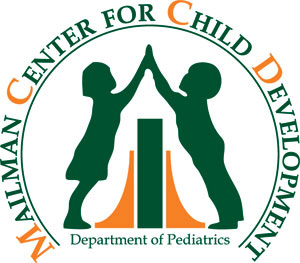A research program led by the Mailman Center for Child Development at the University of Miami Miller School of Medicine received funding of $900,000 from the Health Resources and Services Administration (HRSA) Maternal and Child Health Bureau. The study "Health Equity at the Intersection of Disability and Ethnic Group Status: Adaptation of 'Healthy Caregivers-Healthy Children' for Children with Special Healthcare Needs (HC3)" will implement and evaluate the effectiveness of an obesity prevention program for children with developmental, physical, and/or intellectual disabilities.
A research program led by the Mailman Center for Child Development at the University of Miami Miller School of Medicine received funding of $900,000 from the Health Resources and Services Administration (HRSA) Maternal and Child Health Bureau.
The study “Health Equity at the Intersection of Disability and Ethnic Group Status: Adaptation of ‘Healthy Caregivers-Healthy Children’ for Children with Special Healthcare Needs (HC3)” will implement and evaluate the effectiveness of an obesity prevention program for children with developmental, physical, and/or intellectual disabilities.
Researchers will examine teacher and parent roles as nutritional gatekeepers or role models in 10 inclusion-based childcare centers, and how they in turn influence young children’s eating and physical activity behaviors. They will also examine policies that childcare centers serving children with special health care needs (CSHCN) can implement to create a healthier environment that promotes good nutrition and physical activity. The outcome will be a childcare center-based toolkit with lessons learned that can be implemented in other preschools.
Ruby Natale, Ph.D., Psy.D., associate professor of clinical pediatrics at the University of Miami Miller School of Medicine and principal investigator on the study, said the project will serve as a foundation for further prevention research on children with special health care needs. “There is currently very limited research on the causes, consequences, prevention, and treatment of obesity among CSHCN, and virtually no research has addressed the intersection of CSHCN and obesity prevention in the early childhood years (ages 2-to-5) or the preschool/childcare setting,” she said.
In addition, South Florida’s demographic will allow researchers to work with children, families and teachers who represent culturally and linguistically diverse backgrounds. “Ultimately, a program like this allows us to begin to develop a perspective on the cultural variables related to this population,” Dr. Natale said. “It helps us address health equity at the intersection of disability and ethnicity and/or race.”
The HC3 research program is an expansion of Healthy Caregivers-Healthy Children (HC2), an obesity prevention program, which focused on neurotypical preschool children in childcare centers throughout the country.
This study will be conducted with approximately 300 children with special healthcare needs, between two to five years of age at enrollment, along with their primary caregivers and child care providers/teachers. A total of 10 inclusion-based childcare centers serving CSHCN will be randomly assigned to one of two arms: half will receive the HC2 which consists of environmental/center modifications (i.e. menu changes) and a USDA role modeling/gatekeeper curriculum for parents and teachers, and the other half will receive a behavior management program called Jump Start.











